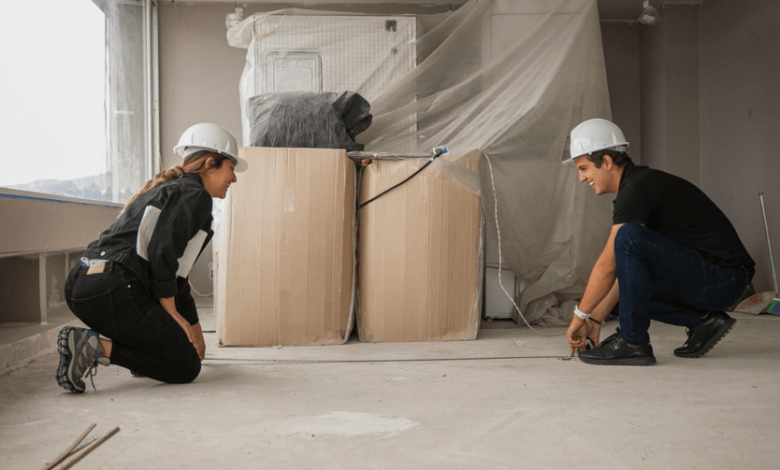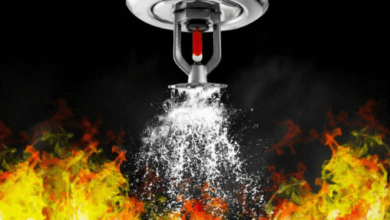Cleaning Up After Construction: What You Need to Know

Cleaning up after a construction project can feel like a never-ending task. With debris piling up and the clock ticking on deadlines, it’s easy to get overwhelmed. But managing the mess doesn’t have to be stressful. Whether you’re working on a large-scale project or a smaller site, there are simple ways to stay on top of cleanup. In this post, we’ll break down practical tips and strategies to help you handle construction debris efficiently. Stick around to learn how these methods can make your job easier and keep your site in tip-top shape.
Why Proper Debris Management is Essential
A messy construction site doesn’t just look bad—it can lead to bigger problems that affect the entire project. Piles of debris can slow down work, create safety hazards, and even impact how clients perceive the job. Whether it’s wood scraps, broken bricks, or leftover materials, unhandled debris can make navigating the site tricky for workers, slowing down progress and increasing the risk of accidents. A cluttered workspace can also be a liability, as heavy materials or sharp objects lying around can lead to injury.
When debris is properly managed, though, everything flows more smoothly. Workers can move freely, equipment is more accessible, and accidents are less likely. Plus, staying on top of cleanup ensures you’re following local regulations and safety codes, which helps you avoid any fines or legal issues down the line. Most municipalities have strict guidelines for construction waste disposal, and failure to comply can result in penalties or delays in your project.
On top of that, maintaining a clean site enhances your business’s reputation. Clients, whether homeowners or large corporations, notice these small details, and a well-organized site reflects professionalism. A tidy site gives them confidence that the project is being handled properly, and that attention to detail is a priority. Whether it’s a residential job or a large commercial project, a clean site can be the difference between repeat business or a one-off contract. After all, no one wants to walk onto a site that looks like chaos waiting to happen.
Finding the Right Help for Construction Debris Cleanup
Handling all the debris on your own can be overwhelming, especially if the project is large or has multiple stages of demolition and building. Construction debris comes in all shapes and sizes, from concrete and steel to drywall and insulation, and dealing with it requires more than just tossing everything into a bin. That’s where quality services for construction debris cleanup come in. Finding the right service provider can make all the difference in how smoothly the cleanup process goes.
The best companies are reliable, efficient, and know how to handle different types of waste in a responsible manner. You don’t want to risk hiring a company that doesn’t dispose of debris according to regulations, leaving you with potential legal or environmental headaches later. It’s crucial to check whether they have experience in handling construction materials, particularly when it comes to sorting recyclables, hazardous materials, and general waste. A good service will not only haul everything away but also make sure it’s sorted correctly to minimize environmental impact.
It’s also important to consider their environmental practices. In today’s eco-conscious world, recycling and eco-friendly disposal should be high on the list of priorities. Some services go the extra mile by ensuring that materials like metal, wood, and concrete are diverted from landfills and sent to recycling facilities instead. This not only reduces your project’s carbon footprint but can also reflect well on your business, showing clients that you care about sustainability.
When you hire professionals, you’re not just saving time—you’re also getting peace of mind. You won’t have to worry about hauling heavy loads or figuring out where everything needs to go. These services typically handle everything, from sorting materials to transporting them to the right disposal site, leaving you to focus on more pressing aspects of your construction project. For many construction projects, outsourcing debris removal is worth every penny, saving you the hassle and potential safety risks involved in doing it yourself. Ultimately, it frees up your time and energy, allowing you to keep the job running smoothly without getting bogged down by waste management concerns.
DIY Cleanup Tips for Smaller Construction Sites
Not every construction project needs a professional cleanup crew. For smaller sites, you might be able to handle debris on your own, saving both time and money. However, even with DIY efforts, a little planning goes a long way in making the process efficient and hassle-free. The key is having a solid system in place for sorting and disposing of different types of waste as you go.
Start by setting up separate bins for various materials—wood, metal, concrete, and general trash. This makes recycling easier and keeps the site organized. Many local waste management services offer specific guidelines for how these materials should be handled, so following their recommendations helps avoid any headaches later. Sorting materials from the beginning also means you won’t face a giant mess at the end of the project, trying to separate everything before disposal.
Another important tip is to clean up incrementally instead of waiting until the very end. Tidying up throughout the day keeps the site manageable and ensures that nothing gets too out of hand. Make it a habit for everyone on the crew to tidy their workspace regularly—this creates a culture of cleanliness and makes the final cleanup feel less overwhelming.
Finally, investing in some basic tools can make DIY cleanup much easier. Wheelbarrows, heavy-duty trash bags, and sturdy gloves are essential for handling sharp or heavy materials safely. If you have access to a small dumpster or waste container, keeping it on-site during the project is a game-changer. You can toss debris in as you go, making sure the site stays clear without having to do a massive clean-up at the very end. While DIY cleanup is totally manageable for smaller jobs, being proactive and organized is what will save you time and effort.
Staying Eco-Friendly with Your Debris Management
Managing construction waste isn’t just about getting rid of debris—it’s also about how you do it. With increasing awareness around environmental impact, more construction teams are looking for ways to minimize waste and make their projects greener. The good news is that managing debris in an eco-friendly way isn’t as hard as it sounds, and it can even save money in the long run.
The first step is recycling as much as possible. Construction projects generate tons of materials that can be reused, such as metals, wood, and even certain types of insulation. Before tossing everything into a dumpster, take a moment to see what can be salvaged. Many local recycling centers accept construction materials, or you can look into donating reusable items to organizations that can repurpose them.
Another eco-friendly approach is reducing waste at the source. Planning ahead can make a big difference here. For example, ordering materials in precise amounts reduces the amount of leftover scraps, and reusing materials from other projects can cut down on the need for new resources. Some contractors even incorporate green building practices, which emphasize the use of sustainable, recycled, or renewable materials to reduce the overall environmental footprint of their projects.
If you’re hiring a cleanup service, look for companies that prioritize eco-friendly disposal methods. Many services today offer green waste management solutions, ensuring that a significant portion of the debris is recycled or reused instead of heading straight to the landfill. Not only does this reduce the strain on landfills, but it also shows clients that your project aligns with environmentally responsible practices. It’s a win-win for your business and the planet.
Ultimately, staying eco-friendly with your debris management is all about being mindful of where your waste goes and making efforts to reduce the environmental impact of your project. With just a little extra planning, you can turn a wasteful construction process into one that’s both efficient and sustainable.
Long-Term Strategies for Construction Waste Management
Effective construction waste management doesn’t end when the project wraps up. In fact, setting up long-term strategies ensures that future projects run more smoothly and that cleanup becomes part of your regular workflow. The key is to integrate waste management into the planning phase of each job, instead of treating it as an afterthought.
Start by creating a waste management plan at the beginning of every project. This can outline how debris will be handled, who is responsible for cleanup, and what resources or services will be needed. When everyone is clear on the process, it prevents waste from piling up and allows you to manage it as the project progresses. This also helps you anticipate any extra costs for disposal, making your budget more accurate.
Regularly educating your team on the importance of keeping the site clean is another critical aspect of long-term waste management. Make sure workers understand how to dispose of materials properly and encourage them to maintain a tidy workspace. This not only improves safety but also speeds up the final cleanup. Over time, these habits will make it easier to handle construction waste on all future projects.
You can also develop partnerships with local recycling facilities or waste management companies. By establishing relationships with reliable service providers, you’ll always have a go-to option for handling debris, making the process faster and more cost-efficient. With a bit of planning and the right strategies, you can keep your construction sites cleaner, safer, and more environmentally friendly in the long run.
Read also: Emergency Plumbers in Tring: Plumbing Services in Tring
Conclusion
Post-construction cleanup doesn’t have to be a stressful or overwhelming task. By understanding why debris management is important, finding the right services, and using efficient DIY strategies, you can make cleanup a breeze. Whether you’re handling a small site or a major project, taking these steps can save you time, reduce risks, and improve the overall flow of work.
Remember, managing construction waste efficiently benefits both your crew and the environment. With the right approach, you can ensure that every project stays clean, safe, and on track from start to finish.




